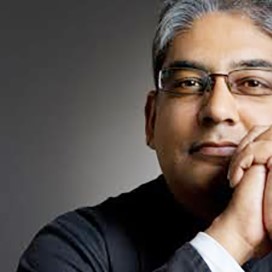
News

Anti-Semitism on its way out in the Arab world
HUSSEIN SOLOMON
As a child, this triple Abrahamic tradition in my family has always fascinated me as I attended a Catholic school, singing in the choir and going to maddressah (educational institution) after school. I revelled in being able to attend mass and jummah (the sermon before Friday prayer).
As an academic and as a Muslim, I tried to use my own mixed heritage to build bridges through inter-faith dialogue and as the editor of a newspaper I began – Islamic Focus.
As a Muslim writing in this Jewish newspaper, nothing saddens me more than the enmity displayed by the adherents of our two faiths. In this charged, polarising atmosphere, the bridge-builders between our two faiths are often viewed with suspicion or open hostility. Such hatred of the proverbial other is understandable given our chequered history, but it never makes it right.
Anti-Semitism on the part of the Arab world is a shame on our collective humanity, and it’s something I have fought against. There is, however, reason to hope on account of the values change sweeping throughout the Arab world as a result of the processes of urbanisation, modernisation, and globalisation facilitated by modern technology.
Arab society, according to the latest evidence from the World Values Survey and Arab Barometer, is becoming more secular, liberal, and egalitarian in its values, moving away from religion, tradition, and ethnocentrism.
In the process, Arab society is getting more tolerant of the proverbial – be it non-Muslims, Americans, other Westerners, or indeed the state of Israel. Support for recognising Israel as a state has reached unprecedented levels.
Arabs are also increasingly embracing their Jewish heritage. A million Jews used to reside in the Arab world before the majority were unceremoniously forced to leave their homeland on account of the establishment of the state of Israel. Today, in both Egypt and Lebanon, the state is investing millions of dollars to restore synagogues.
Iraq, meanwhile, seeks to renew contacts with Iraqi Jews. Sudan’s minister of religious affairs, Nasser Aladin, has also pleaded for Sudanese Jews who have emigrated to return to their country. All this highlights growing tolerance in Arab society – a refreshing break from the past.
The Arab Youth Survey of 2019, which was conducted in 15 countries in the Gulf, Levant, and North Africa and involved 3 300 face-to-face surveys, found that 18 to 24-year-olds in the region were becoming more secular, blaming religion and sectarianism for various conflicts in their region.
Moreover, 66% believe that religion is playing too big a role in the Middle East, while half agree that the “Arab world’s religious values are holding the Arab world back”. Explaining this change in attitude, Mohammad Shahrour, an academic at the University of Damascus, says that the region’s youth are confronted with a “deep intellectual dilemma when it comes to reconciling conservative teachings with the world they inhabit”. In addition, he says access to the internet has “allowed them to keep pace with worldwide developments, opening their minds to virtually all cultures and civilisations”.
Other polls such as that conducted by BBC News Arabic not only reinforce this trend, but point out the implications for Islamist organisations. The BBC’s polls involved 25 000 people from Algeria, Egypt, Iraq, Jordan, Libya, Morocco, Palestine, Sudan, Tunisia, and Yemen.
The survey demonstrated that trust in Islamist groups and organisations fell calamitously across the Middle East, North Africa, Afghanistan, and Pakistan region. In Jordan and Morocco, trust in the Muslim Brotherhood declined 20% between 2012 and 2019, whilst in Sudan, support for the Brotherhood dropped further by 25%, from 49% to a mere 24%. Support for Ennahda in Tunisia also declined 24%, whilst Palestinian support for Hamas declined to 22% from 48% over the 2012-2019 period. Increasingly moderate Islamic alternatives are being sought.
This values change suggests that Islamic fundamentalism is on the wane in the Arab world, and that anti-Semitism, too, may well be on its way out. I write this article in the context of a world facing a grave challenge as a result of the coronavirus. Now, more than ever, we need to find our common humanity and let go of the hatred, bigotry, and intolerance.
- Professor Hussein Solomon lectures in the department of political studies and governance at the University of the Free State.





David Kaliski
May 7, 2020 at 1:34 pm
‘Your optimism is refreshing. No doubt your figures do indicate that the Middle East may well be leaning towards a more secular way of thinking. However, you seem to believe that a move away from organized religion in someway conflates with a reduction in antisemitism. Would that it were so simple. Antisemitism has minimal connection with religious belief – any religion, not only Islam. Antisemitism is a beast of its own; there is no religious, social or political justification (even US democrats are not free of it). There is no ”cause” of it beyond baseless hatred. Even in Egypt, despite a treaty with Israel, hatred for Israel and antisemitism thrives. Any rapprochement with Israel is a matter of expediency and I believe it does not represent any personal changes of heart. Don’t commit too much of your capital to a state of declining antisemitism in the ME. I’d gladly welcome being proved wrong.’